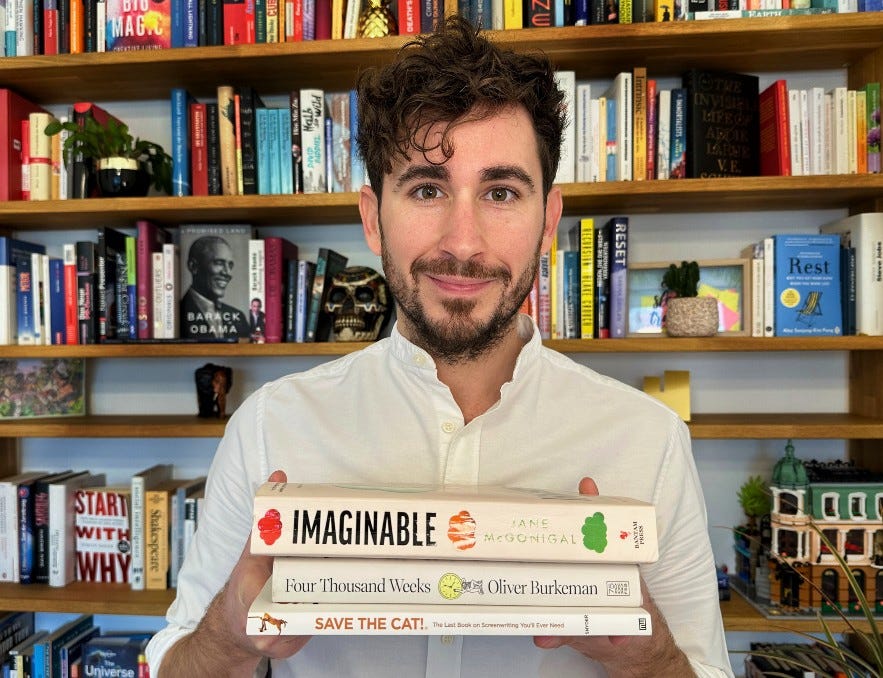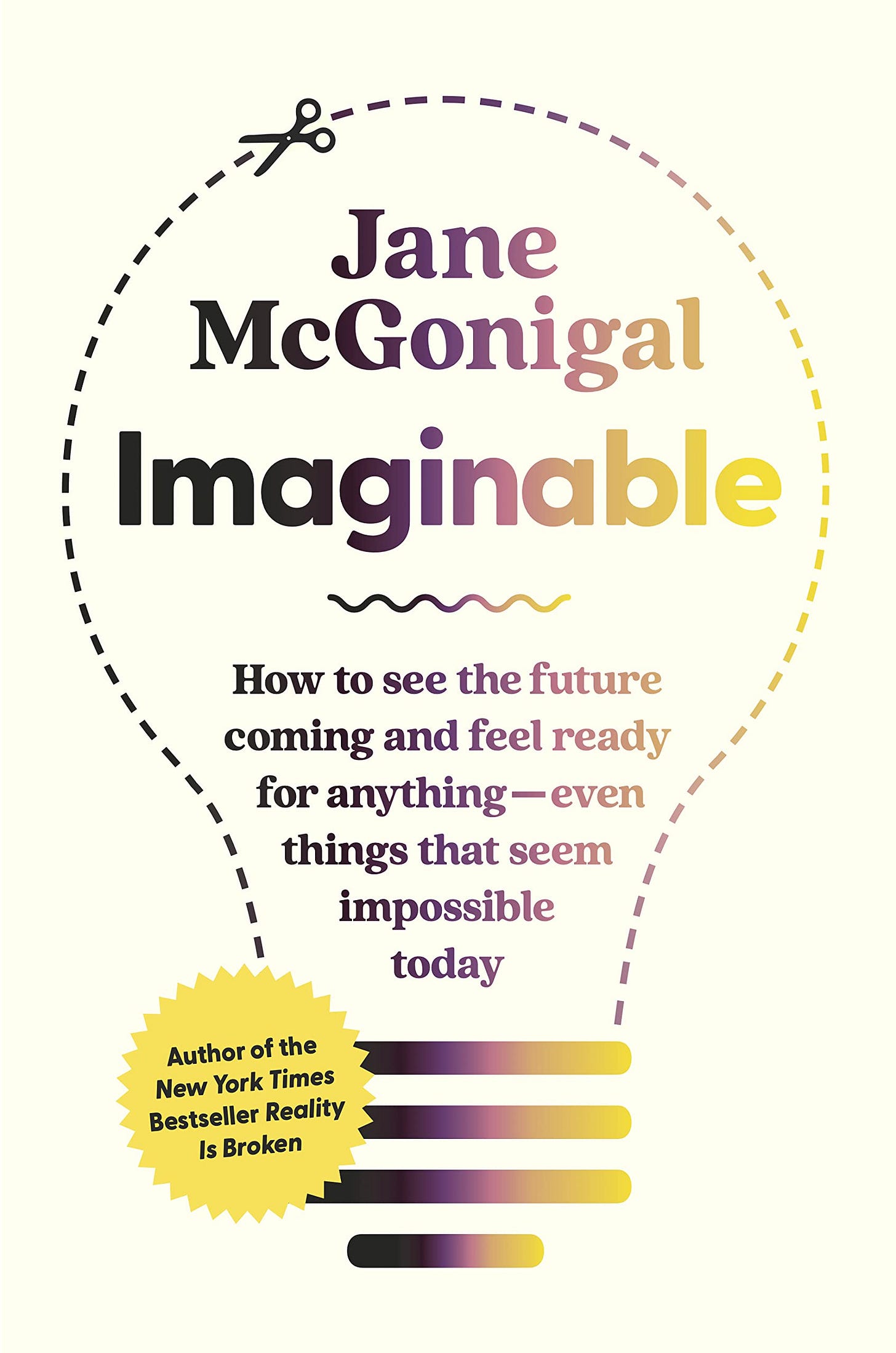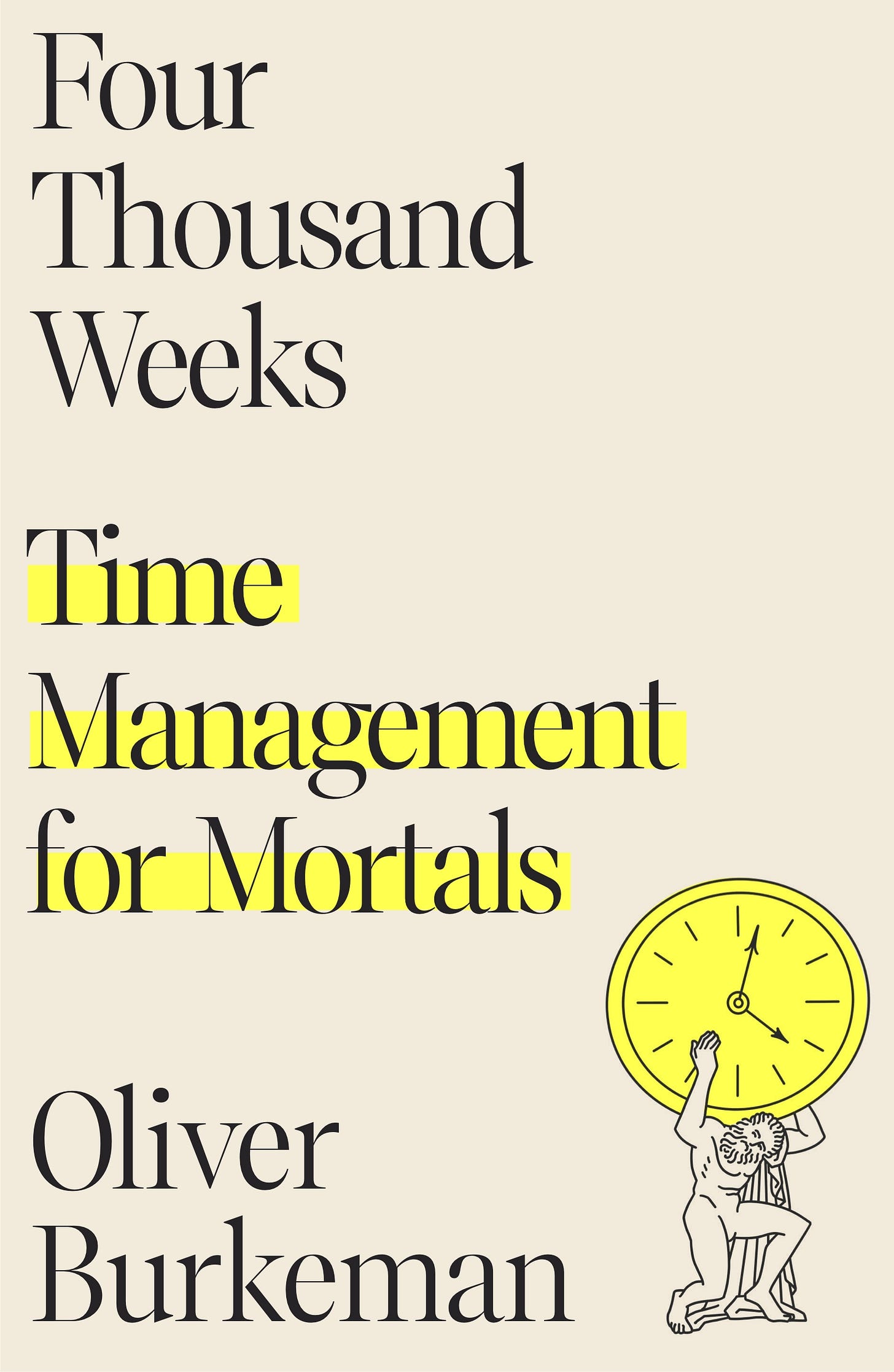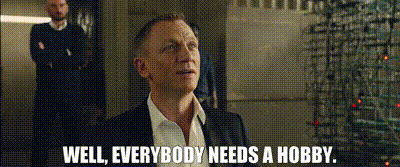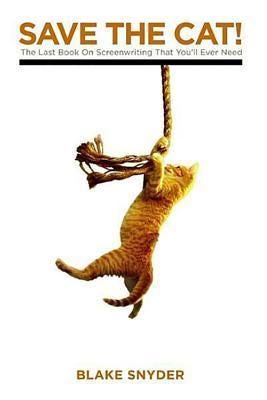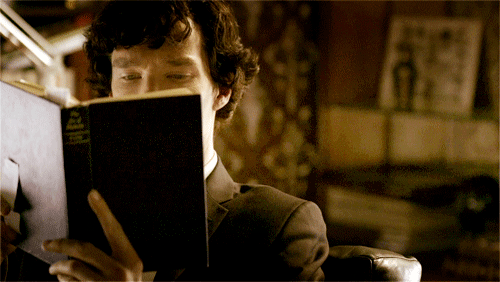📚 3 books, 2 newsletters, and 1 podcast
Content that inspired me last year.
Hello 👋 My name is Florian Schleicher and this is the FutureStrategies newsletter from FutureS. I'm glad you're reading along 💚 If you want to learn strategic marketing, my Simple & Sustainable Marketing Academy is just right for you.
I am an inquisitive person - I never get enough of new inputs, inspirations, and stories.
"Reading? It's good for two years, then you're hooked."
Klaus Bittermann
These words describe me and my free time - very well.
That's why everyone who has had a virtual call with me in the last few months sees and knows my bookshelf in the background.
Over 312 are in it meanwhile. And this year 28 new ones have been added.
3 of them I would like to recommend to you today. Plus 2 newsletters I enjoy reading and 1 podcast I listen to regularly.
(By the way, I'm not someone who only reads technical literature. About half of the books I read are novels. Because I think breaks are extremely important and because they give me wholly new and different thoughts).
3 - 2 - 1 ... here we go.
1️⃣ Imaginable - von Jane McGonigal - Learning to Create the Future
In her entertaining and practical book, the futurologist and game designer shows how we can better imagine the future. Because once we have done that, we can actively shape the future ourselves.
“Future we usually say with an ‘s’—‘futures’—so we can keep an open mind to many different things. We’re not trying to predict a singular future. We’re trying to consider possibilities so we can shape it to be more like the future we want.”
Your thoughts around future scenarios for the next 10 years - personally and in world affairs have made me very inspired and optimistic.
“We can train our brains to detect the possibility of exerting control over outcomes in the future - by exposing ourselves to future scenarios and imagining how we might successfully react to them.”
2️⃣ Four Thousand Weeks - von Oliver Burkeman - Learning to use your own time
There are now thousands and thousands of books on time management. Most have the same tips.
But in his book, the former Guardian journalist gives historical context and advice for people that made it easy for me to implement some directly.
It's not for nothing that the book's subtitle is "Time Management for Mortals."
“What you pay attention to will define, for you, what reality is.”
I found Burkeman's inputs around hobbies particularly relaxing, showing me how important they are, what value they have, and why "side hustles" don't have the same psychological relaxation aspect:
“In an age of instrumentalization, the hobbyist is a subversive: he insists that some things are worth doing for themselves alone, despite offering no payoffs in terms of productivity or profit.
This also helps explain why it’s far less embarrassing (indeed, positively fashionable) to have a “side hustle”, a hobbylike activity explicitly pursued with profit in mind.
To pursue an activity in which you have no hope of becoming exceptional is, to put aside, for a while, the anxious need to “use time well”.”
A super reading tip for anyone who wants to make good use of their time while not having superhuman resources.
3️⃣ Save the Cat - von Blake Snyder - Learning to tell stories
Finding a good book about stories is not easy. That's why I read so many novels. But in this book, screenwriter Blake Snyder gives some very good and clear guidance around storytelling, using movies as an example.
Aside from clear guidelines we can follow, Snyder also gives tips on how we can incorporate storytelling into our everyday lives to test ideas:
“You find out more about your idea by talking to people one-on-one than having them read it. This is called “test marketing”. Just approach someone who you don’t know and ask them whether they have a minute to listen to it. Pitch it to them.”
While he focuses heavily on scripts, with a little abstraction it becomes clear how stories can enrich our marketing mix.
💌 2 Newsletter: Creative Destruction & The Brain Itch
Newsletters are like little book excerpts - that's why they are now simply part of my everyday life.
I really appreciate Thomas Klaffke's newsletter with the beautiful name "Creative Destruction". He writes about how good ideas can shape a better world. There is a lot of background, history and future scenarios.
I also always enjoy reading my strategist friend Désirée Bambynek's newsletter, The Brain Itch. She writes about insights, ideas, opinions, and perspectives around brand building and creating sustainable success.
🎧 1 Podcast: Forces For Good
Isn't listening to podcasts a bit like reading with your ears?
The range of podcasts on offer is now almost endless, but one podcast, in particular, has caught my eye in recent months:
I deal a lot with sustainability and impact marketing. The B-Corp: Forces For Good podcast inspires me again and again.
Interesting guests will talk about how companies can contribute to solving the biggest challenges of our planet and humanity.
👀 More reading?
I hope I could inspire you a little bit in the new year with my reading and listening tips.
I'll be back next week with a content post.
🏁5 steps for successful start-up marketing - What makes a start-up successful? A guide with practical examples.
✅ Green marketing with strategy - What does it take for strategic green marketing and which companies are doing a good job?
👓 VR - The Future of Reality? - Interview with two leading VR/AR experts from vrisch: 5 questions on the state of virtual reality, how it can be used for marketing of brands and the future.
🌍🔜 The future is impact marketing - How will sustainable impact on planet, profit & people shape companies in the future and what is impact marketing?
PS: You can also read this posting in German.


